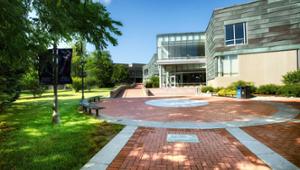
Public Policy
The goal of the Public Policy Program is to prepare students to examine, shape, and participate in civic life in all its dimensions.
About the Major
Government majors focus on the process of decision-making, while public policy majors focus on outcomes, from massive programs such as Medicare and Social Security, to the details of social services and education policy. This interdisciplinary concentration draws on the tools and insights of political science, economics, and philosophy to evaluate governmental decisions and design more effective programs. At �鶹����AV, public policy is a hands-on major where students take on projects that make a difference in the lives of people and communities.
Students Will Learn To:
- Understand the ethical dimensions of policy decisions and the justice implications of policy research
- Communicate clearly and persuasively about public policy issues in their own research
- Engage with stakeholders and policy makers as interns and researchers
- Establish a foundation for professional work in policy science and policy making
A Sampling of Courses

Comparative Health Policy
Investigation of health policy from a comparative perspective. The course introduces fundamental concepts in health policy and examines different health care systems across the globe as well as case studies in health care delivery and public health.
Explore these select courses:
This course provides an introduction to microeconomic analysis and its applications to environmental policy. We first consider the conditions under which markets fail to efficiently allocate scarce resources in the context of environmental issues, such as managing natural resources and climate change. We examine policy instruments including regulations, taxes, subsidies, quotas, and tradable permits to address those market failures. The last part of the course focuses on analyzing distributive impacts of environmental policies and understanding the economic forces behind environmental justice issues.
This course focuses on understanding community-mobilization, organizational leadership models and perspectives for creating social change. It will promote an intersectional understanding of campus and community conditions that give rise to damaging experiences. Students will collaboratively develop leadership change strategies that oppose more common, “expert”-driven approaches. Required field study: week one of spring break. Prerequisite: participation in LLI (January) and Intro level WMGST, PPOL, AFRST, or SOC course and consent of the instructor.
Meet Our Faculty
Public administration, public ethics, and law and society
Faces & Spaces
The Kirner-Johnson Building, also known as KJ, houses the offices for faculty members in government. The building features an atrium, team rooms for working on group projects, and five case-method classrooms with the latest technology to support teaching and learning.







Careers After �鶹����AV
�鶹����AV graduates who concentrated in public policy are pursuing careers in a variety of fields, including:
- Director of Product Strategy, IBM
- Sustainability Coordinator, Wesleyan University
- Volunteer, Peace Corps
- President/Co-Founder, Biomarker Strategies
- Director of Environmental Advocacy, Safe Climate Campaign
- Strategic Advisor, City of Seattle
- Writer, Money Magazine
- President/CEO, Consumer Health Foundation
- Program Lead Editor, U.S. Global Change Research Program
Explore �鶹����AV Stories

Dewayne Martin Aims to Change Lives
Many young people have grand aspirations to change the world; not all actually do. Dewayne Martin ’24 has such aspirations in abundance and is already proving that he’s willing to see them through.

The Levitt Justice Lab: A Program Built to Inspire
The Levitt (Center) Law & Justice Lab, a program designed for students interested in synthesizing perspectives on public policy issues, just concluded a semester focused on exploring policies affecting homelessness in Utica, N.Y. The experience was led by Professors Frank Anechiarico (government), Herman Lehman (biology), Philip Bean (history), and Gwendolyn Dordick (government).

Obama Scholarship Recipient Hurner ’24 Examines Refugee Issues
As long as she has been a student at �鶹����AV, Mary Hurner ’24 has been passionate about building community both on and off the Hill, and the summer before her senior year was no exception. Hurner, an inaugural awardee of the Obama-Chesky Scholarship for Public Service, was awarded a $10,000 stipend to pursue her interest in asylum and refugee resettlement.
Contact
Department Name
Public Policy Program
Contact Name
Frank Anechiarico, Program Director
Clinton, NY 13323
